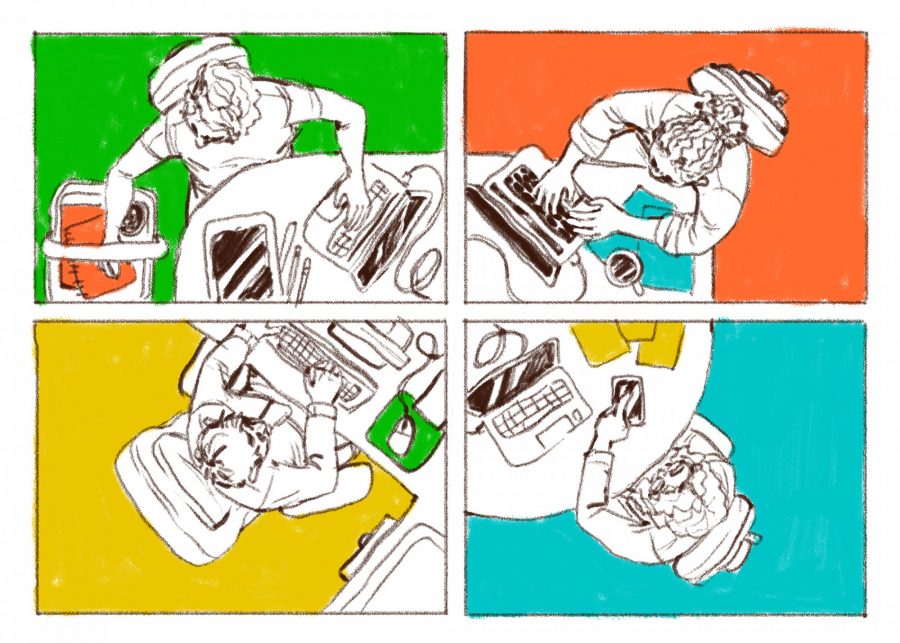Student Counseling Services at the University of Minnesota has added new counseling affinity groups to support LGBTQ+ students and students of color navigating their identities amid the pandemic and increased social upheaval.
The new counseling affinity groups will meet virtually this fall on a weekly basis to bring together students with shared identities to foster connection and empowerment.
The first affinity group, titled “Coping, Supporting, & Healing in the Face of Anti-Asian Discrimination,” was designed to support Asian and Asian American students amid rising anti-Asian racism and xenophobia in the wake of the COVID-19 pandemic. Facilitators later decided to expand the services and include more affinity groups that are specific to students of color.
“We’re dedicating some of these affinity spaces to specific BIPOC student communities in particular, because we know that a core component of health and wellness is feeling that our identities are acknowledged, affirmed, valued, and celebrated,” Alexa Fetzer, groups coordinator and staff psychologist for Student Counseling Services, said in an email.
The new affinity groups include spaces for Black and African American students, LGBTQ+ students, Asian and Asian American students and mixed race students. Facilitators helped in the early stages of the process to envision and help create partnerships for the new groups.
Counseling services collaborated with a variety of programs at the University, including the Rev. Dr. Martin Luther King, Jr. Program, the Aurora Center for Advocacy & Education, TRIO Student Support Services, the Asian Pacific American Resource Center and Boynton Mental Health. Staff from these programs with shared identities corresponding to each group fill the role of facilitators.
“It has been inexplicably beautiful to bear witness to moments of aliveness that come to someone’s eyes in hearing another share how they feel or a story about their life and respond with ‘Wow, I’ve felt that way too!’” Alex Montes, an affinity group facilitator and clinical social work therapist, said in an email. “To be witness to unspoken connection and affirmation is like nothing else.”
Third-year student Justine Mattson regularly attended a counseling group last spring and summer. As a mixed-race woman, Mattson said she has dealt with racial impostor syndrome, the feeling of not fully belonging to her race or heritage.
“I definitely walked away with a lot more confidence in what my place is in the LGBTQ community and the BIPOC community,” Mattson said. “It was really a sense of belonging and understanding.”
Mattson stopped attending group counseling due to scheduling conflicts but also to open up another opportunity for a student to join after getting the support she needed.
“Group therapy … it’s not what you’re picturing in your head. It’s a positive space to talk about your day, roommate drama, big societal stuff. It can be anything from your anxiety and racial identity,” Mattson said. “I would just hope people walk away a little more open towards the idea.”
Existing virtually, the groups have also been more accessible to students, Fetzer said in the email.
“We hope the creation of these affinity group spaces can be a flexible way to address these challenges … students who are located outside of MN may still access these affinity groups, at a time when they are likely really needing increased social support,” she said.
The Aurora Center also offers virtual support groups for students to meet and talk about trauma, recovery and healing after relationship violence, according to its website.
There is a high number of students who expressed interest by signing up for group counseling, said Vesna Hampel-Kozar, director of Student Counseling Services.
“Ensuring that BIPOC students have access to these spaces and messages is always important and always needed- and this access is especially important and especially needed for BIPOC communities now, in the face of increased and acute experiences of racism, racial violence, and injustice,” Fetzer said in the email.


















